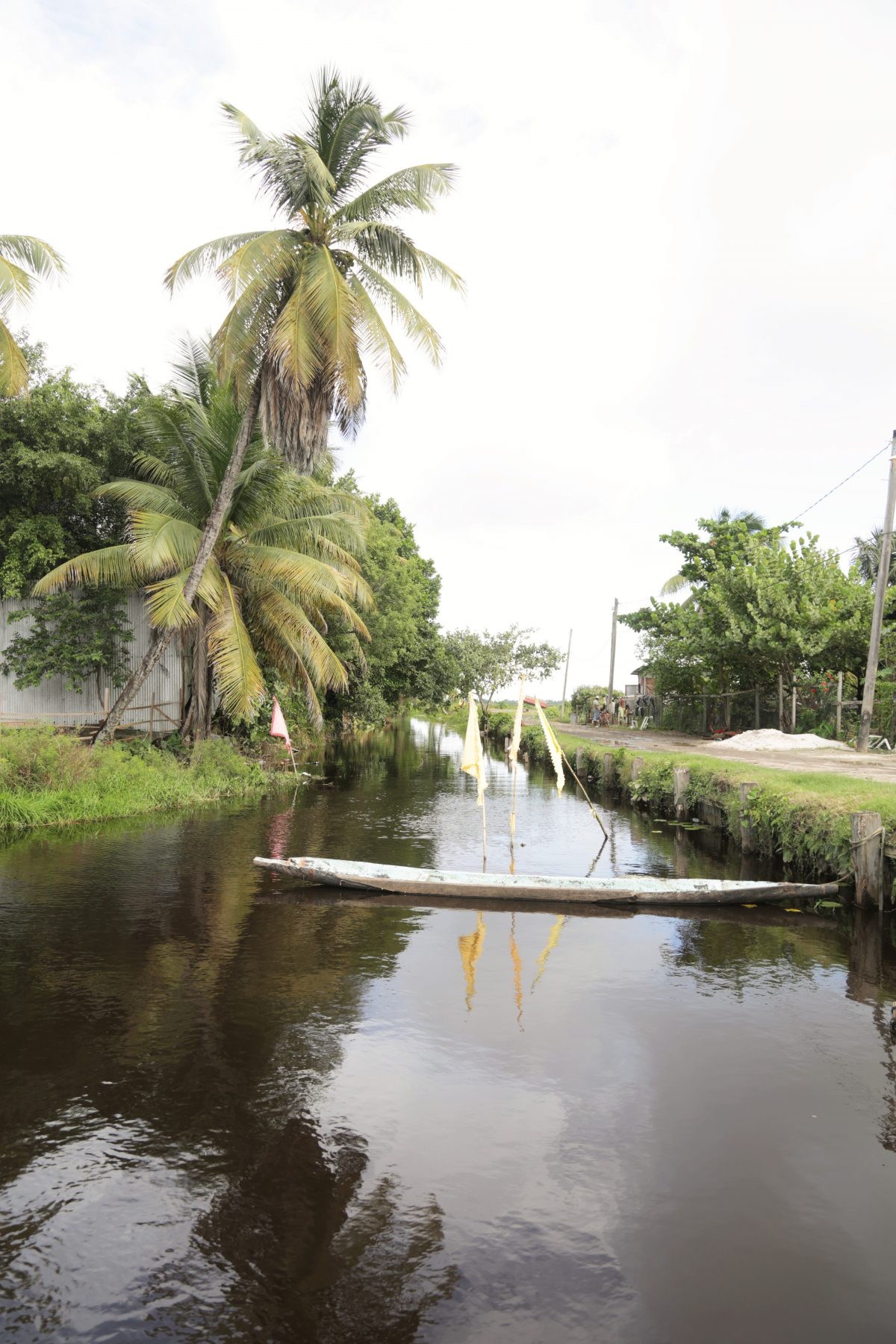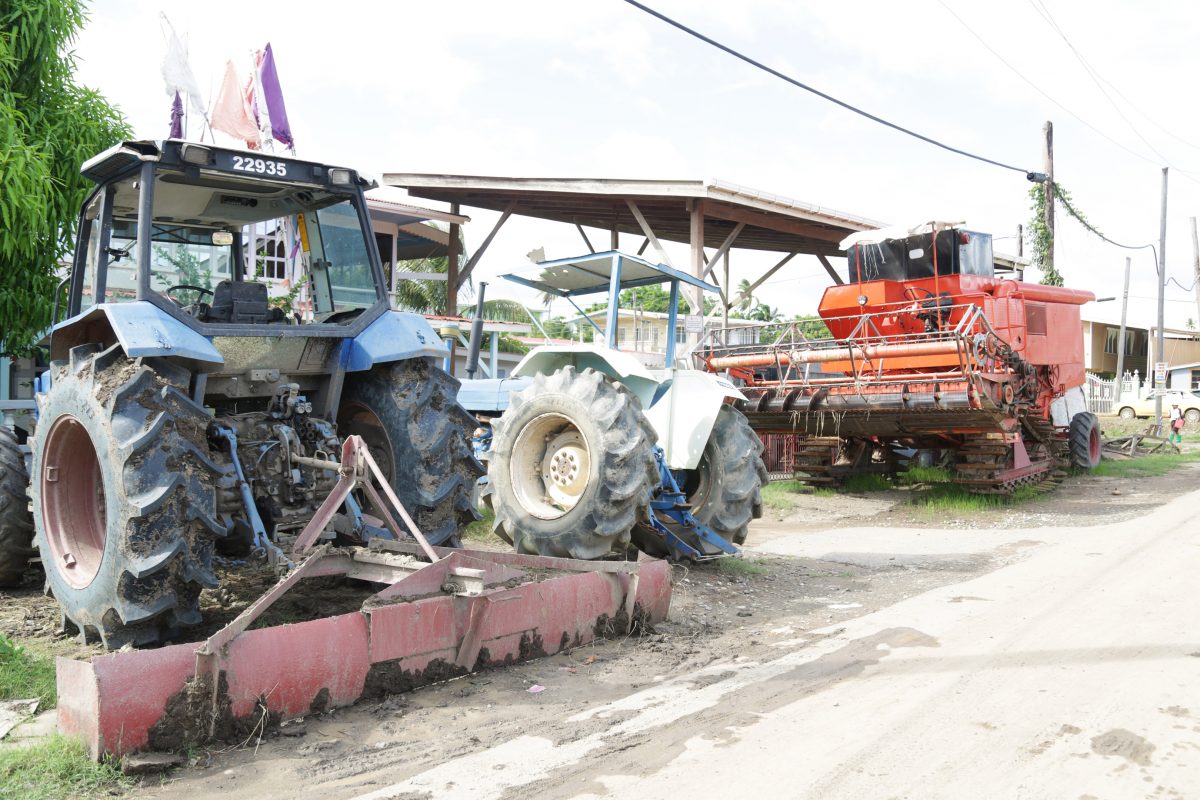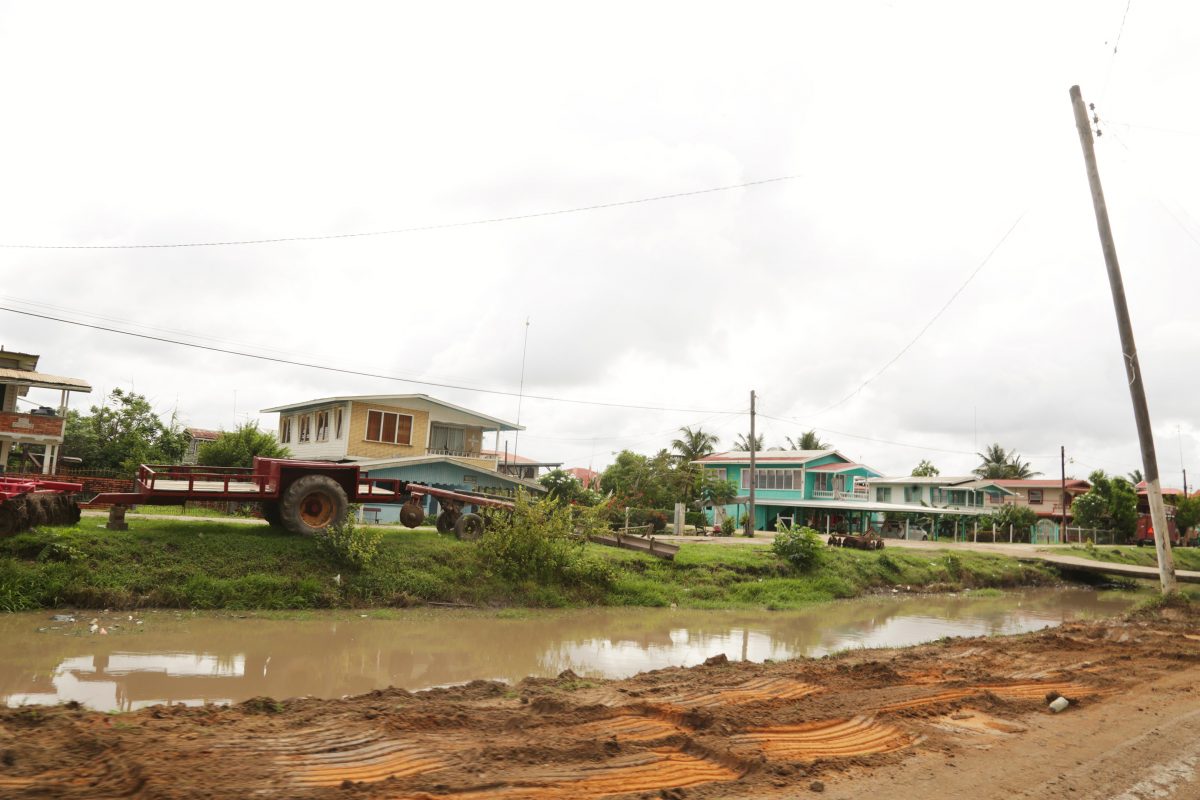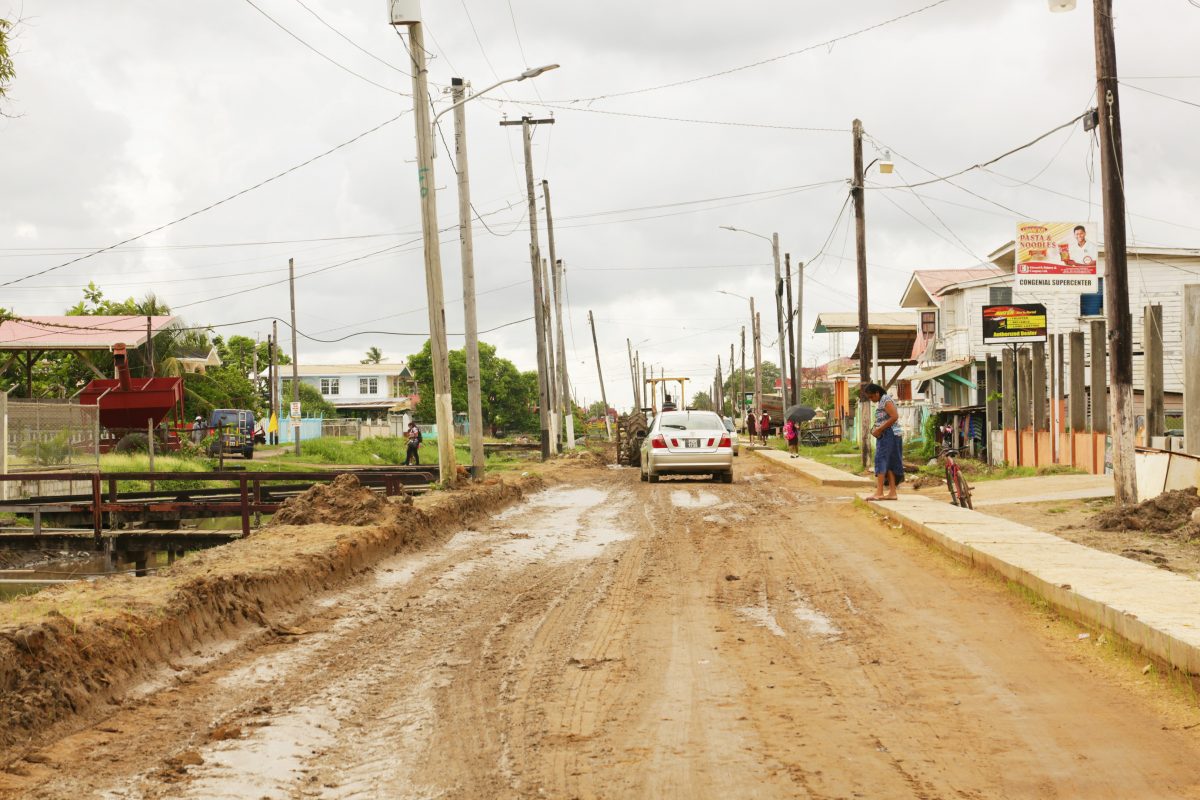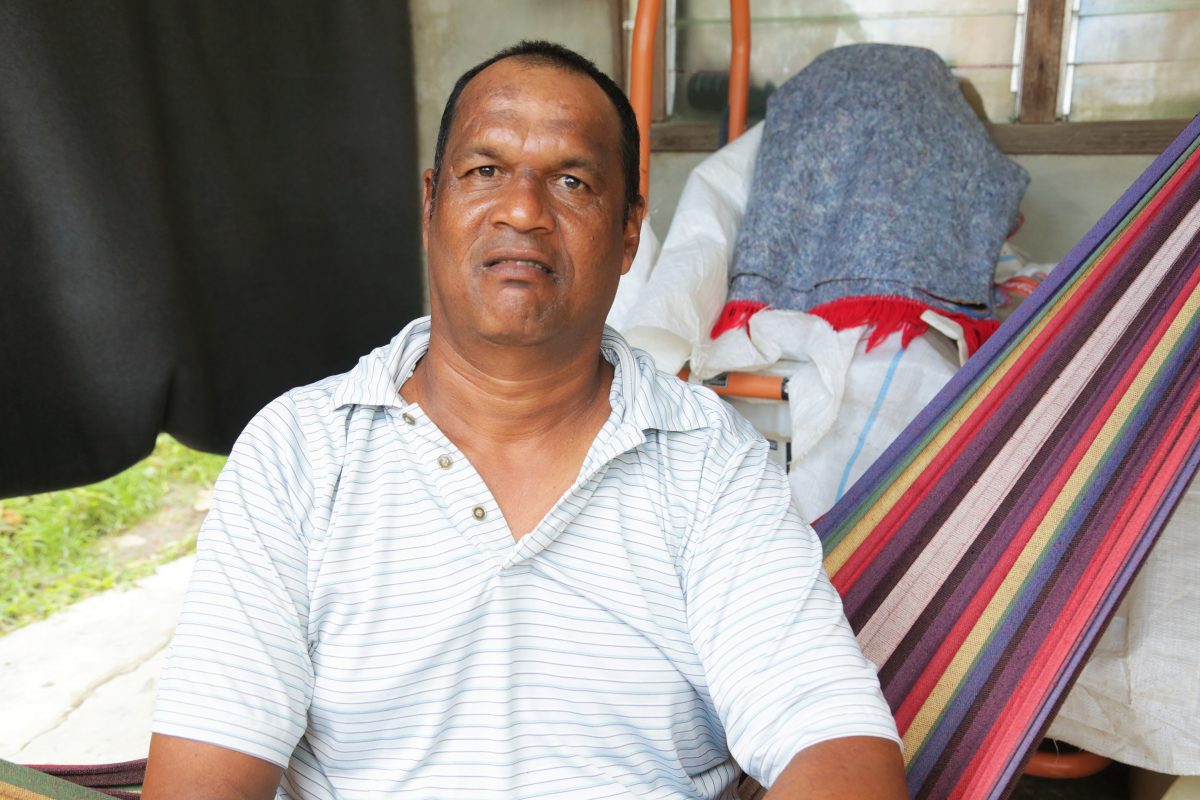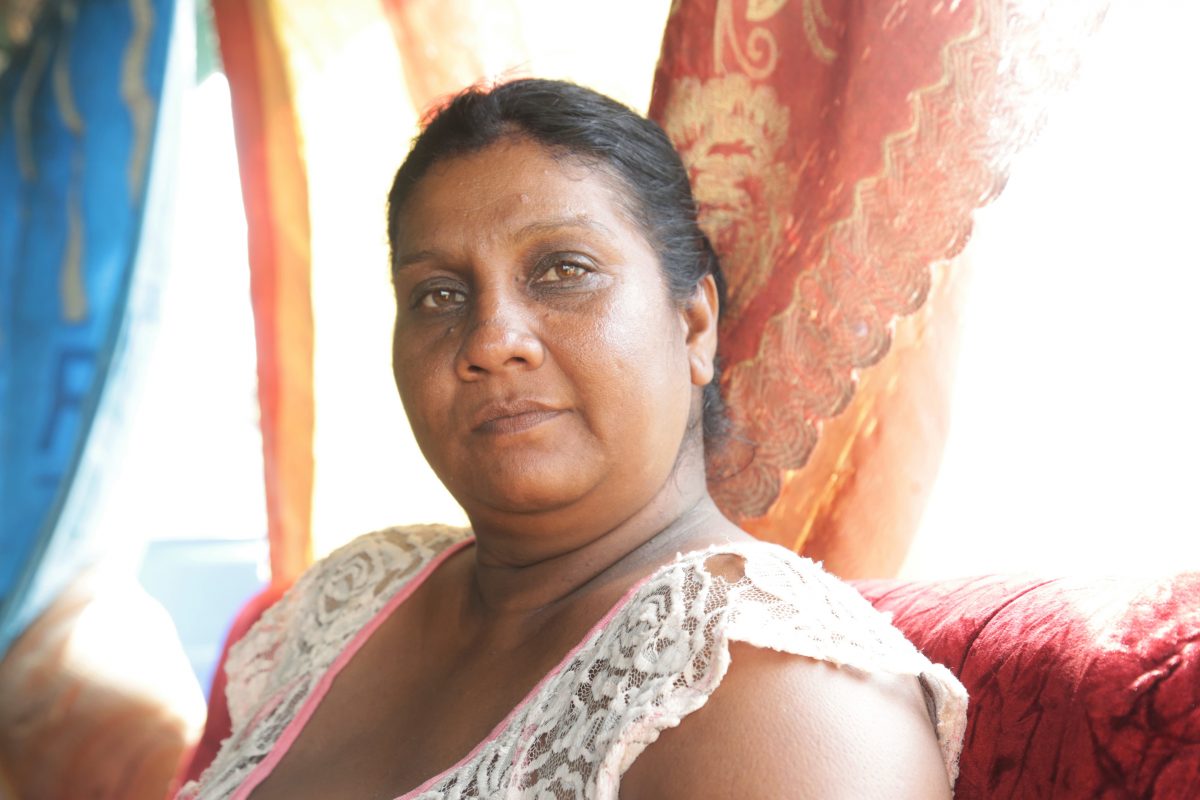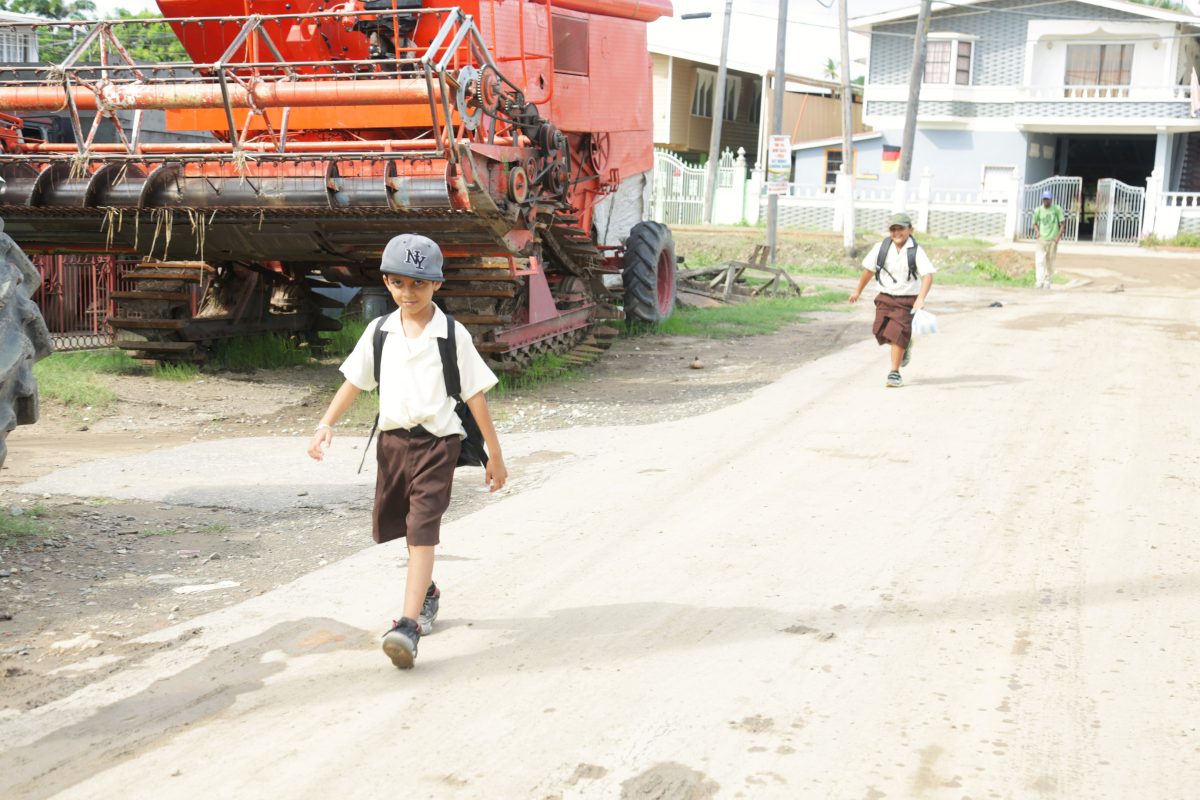Nestled at the far end on the left bank of the Mahaica River, 28 miles from Georgetown and surrounded by rice fields, is the fairly large village of Cane Grove. Its more than 1,500 residents depend mainly on farming for their livelihoods.
The village, which sourced its name after a sugar plantation that once thrived there, is now a place where rice is planted on a large scale. It was said to have existed since the early nineteenth century and its first settlers were reportedly East Indian immigrants. Today, however, it has a mixed population.
Cane Grove could be a picturesque village with its enormous trees, beautiful green fields and alluring black waters, but the picture is spoiled by the messy condition of the orange dirt road, especially during this wet season.
To get to Cane Grove from Mahaica one can take a bus at the market square for the cost of $200 for an adult and children for half price. However, not many drivers want to traverse that messy road and often persons must take taxis that can cost from $500 up to $1,000. When heading to Cane Grove, one passes a number of villages, then a long trail of nothing but trees and farms.
Motie Ramessar sat in his hammock reading a newspaper. He got up and, with some amount of difficulty, opened his gate for me. He then offered a slurred pleasant good day greeting. His affected speech and mobility are the result of an accident he sustained as a teenager.
Ramessar was born in Cane Grove. He explained that growing up he heard stories of his grandmother coming from India with her parents and settling in Cane Grove to work on the sugar plantation. He recalled accompanying his grandmother to the backdam after returning home from school as young as seven years old. They planted bitter cassava.
The 48-year-old man is a past pupil of Virginia Primary School in the village. According to him, he was an intelligent child and after his teachers recognised this, they encouraged him to write the Secondary School Entrance Examination when he was nine years old and again when he was ten. He secured a place at Ann’s Grove Community High School.
Getting to school in Ann’s Grove cost $2 a day, which included transportation and a measly pocket piece. His father worked as a chauffeur on a minibus whenever he was hired. Sometimes he would catch a ride to school with his father but most times he had to take public transportation. On many days getting back home to Cane Grove meant walking from Mahaica unless he was lucky enough to meet the estate truck or a donkey cart heading in. “To make getting home easier, every time I meet two lantern posts, I start to run, then walk two and run another two until I reach home. Used to take me about half an hour to get home,” he said.
Until that fateful day of his accident, he said, he had high hopes of becoming one of the top police officers in the country. A few of his school friends went on to become superintendents in the Guyana Police Force.
Because his family was poor, Ramessar began working along with farmers every Saturday and Sunday at the age of 15. “I used to work to buy clothes for myself and other necessities and if I have excess money, I would give it to them [his parents]. It was a Sunday when it happened,” he recounted.
“At 15, I was fetching paddy bags like big man. So, I would fetch the bags and walk onto the tractor/trailer and pack them there. We were going to Mahaica from Cane Grove and while going the tractor start to get heated, the radiator run short of water. I was the smallest there and because I was the smallest, I was considered the [errand boy] so they send me for the water. I was crossing in front of tractor and when I meet on the other side, a minibus… slam into me and pitch me. I pitch away 26 rods but fortunately where I was going for water some people there used to make coconut oil and they used to throw away the kus kus [coconut copra/insides] that turn into a heap and I fell on that. I would have been dead if it wasn’t for that heap… You see? This God is good.”
The incident left him unconscious for 28 days, but he spent a total of 93 days in the hospital. He didn’t walk again until more than a year later. Ramessar’s family hired a lawyer, the late Derek Jagan, brother of former president Cheddi Jagan and went to court with the intent of settling for no less than $200,000. The driver of the minibus was unlicensed, but his father was reportedly employed by the insurance company holding the minibus’s insurance and was able to pull some strings. The matter was settled for $50,000; $25,000 was paid by the driver of the minibus and other half by the insurance company. The driver, Ramessar related, began doing drugs after this and subsequently went insane.
Ramessar currently receives public assistance and lives with his parents. The incident saw him suffer brain damage and as such he was unable to complete school. Ramessar’s mobility remained limited and as a result many afternoons he makes it to the street corner where he sits with friends. However, because he is an avid reader, especially of the daily newspapers, he is kept abreast with people, places and issues around the world.
“I read the newspapers all the time and if you see how much people dead alone for last week. All of this is because of the negligence of the police force. If them [police] find a driver incompetent of something they would take a little money and let them go. They [drivers] don’t know what it is to face their consequences that next time they would be on the alert and because the police let them get off, they gone again and then they do worse than before,” he lamented.
As regards developments, Ramessar is pleading for the youths in his village to have access to a better community centre grounds. At the moment, there are two ball fields in Cane Grove but according to Ramessar, and some of the other residents, both are in a terrible state. The grass needs to be cut, the ground levelled, and there is need for proper pavilions and washrooms.
He said that two Wednesdays ago he saw persons taking in poles to set up streetlights in the village, which, according to him, is an election gimmick.
‘No proper life’
Marie Paul sat under a shed at her home. She was surrounded by her children and grandchildren. She is originally from Land of Canaan, but her parents died while she was a girl and she went to live with her sister in Grass Hook, Mahaica Creek. Some years later her sister and her family moved with her to Cane Grove. She later met her husband with whom she settled in another part of the village.
Two Saturdays ago, she celebrated her 45th birthday and as is a norm, the entire village celebrated too, so neighbours came over along with other family and friends.
Paul recalled walking long distances in the past to get water from the canals, adding that by the time she got back home, half of it was gone. However, the village now has potable water and electricity. There are shops, a nursery and primary schools, several churches, three temples, a mosque, a rice mill, and the Cane Grove Police Station.
With Christmas around the corner, everyone was in the cleaning spirit. Paul and her family were anticipating the holiday. Once Christmas is over, the people in Cane Grove begin to look forward to New Year’s Day. New Year’s Day is the height of their celebration. On this day they have a family fun day where they have activities such as the greasy pole, which is a greased wooden post thrown across a canal that the men would have to walk across to win bottles of liquor or cash prizes. Grease is also slathered all over a pig which is chased by participating residents; in this game the pig is the prize so the first person to catch the pig gets it. Another greased game is rubbing butter on apples and eating them; the first person to finish wins a prize. There are other fun activities for both children and adults. The New Year’s Day celebration, Paul said, has been around for a long time and was existing before she arrived in the village.
Paul is a housewife. She has never worked outside of the house. Her husband works as a security guard and her sons work on farms planting rice during the planting season. They do no other work, she said, claiming that there is nothing else they can do around the area. Sometimes she keeps a kitchen garden. Other times she purchases greens and vegetables from mobile vendors, along with fish, meat and water. Everything else can be bought from one of the shops around.
“The life before now was better than this life today. The time get so populated now that more people suffering. Way back then people nah bin ah suffer so much although the things nah bin deh fuh the people dem,” a frustrated Shazam Abdul of Cane Grove Estate said.
“People coulda still survive then. This is nah no proper life. Watch the condition of the road wah we get hey. We get leaders fighting fuh the power fuh lead the people and when you put dem deh, dem forget the people them. Dem nah doing nothing fuh the people dem, only fuh themselves. How long you feel you could dig a hole fuh full ah hole? Is dis wah the government deh pon man, all the government dem. Is nah one government I talking bout, yuh know, all the leader dem, is same thing dem deh pon. Is one system.”
Abdul sat next to his neighbour in Coconut Dam, Cane Grove. He had called out to me to enquire about my visit and was eager to share. With preparations for elections beginning, the first thing he spoke of was the leaders and the way the country was being run. He said he would prefer a new party, different people who will bring something different to the table. So far, he has his eyes set on the People’s Republic Party that is being labelled by the public as the “Pastors’ Party”. Being a Christian, he believes that this is the best way for the country to move forward. The man went on to lament the closure of sugar estates by both administrations and the thousands of people who suffered because of this.
He continued, “We country nah been need oil. We gat enough resources in this country. We gat gold, we gat diamond, we gat sugar, we gat bauxite, we gat timber, we gat rice… You know how much other things we gat?
“We nah been need oil but is just the right people nah run we country. Dem is not honest people dem. We nah been need outside people fuh come in. People gat to understand dis is not about race or party, dis is about betterment fuh yuh children dem. Dem [the ministers] don’t even left the parliament fuh come and see if dem people eating or dem nah eating.”
Abdul is a cash crop farmer and is currently planting on the government reserve. According to the man, this should not be, adding that by now he should have been one of the many persons to obtain land. While it is hard to find jobs in the country, the man noted that in Cane Grove jobs are provided for residents. Persons can find jobs on farms or at the rice mill.
When Abdul is not busy on his farm, he helps to clean the surrounding canals. Abdul indicated that for the last few months he has worked cleaning these canals, he and other workers have not been paid. In addition, he said that he saw that public servants’ salaries were raised and while he does realise that he and the others are contracted workers with the Neighbourhood Democratic Council, he believes that they should also get pay raises. Currently, he earns $45 a rod – a rod being the equivalent of 12 feet. A total of 2769 rods are shared among four workers. On the days that work is available, they work from 7 am to 3 pm.
Abdul said too that if they are injured on the job, they have nothing to get. He strongly believes that they should be compensated. He is requesting that the Ministry of Labour looks into this.
The man further said that many of the village’s children, once they have completed primary school never go on to secondary school since it means leaving the village and their parents having to find transportation fees for them. Many of these children, he said, roam the streets. He further said that if the any of the governments, present or past, had cared enough about the people they are responsible for, things like this they would know, but all that matters to them is power and the offices they hold.
“Watch the road condition,” he continued. Watch wah we children got to deal wid everyday dey guh to school. Is a long long time this thing going on.”
As I was leaving, I came upon Ramessar at the corner of one of the streets chatting with another resident. As I passed them, he made a final request for the contractors to hurry up and finish the road adding that works on the road began in August and hardly anything is being done. Both he and his friend said they had learnt that the construction of the mile-long road attracted $105 million and it cannot be completed as yet.
